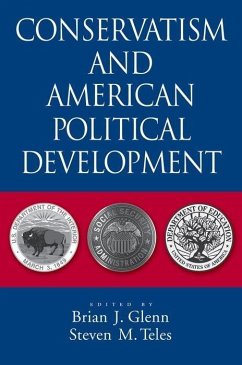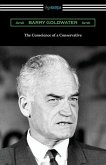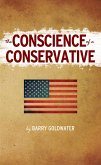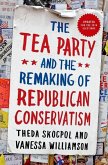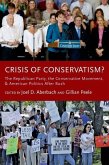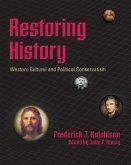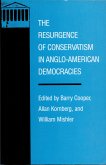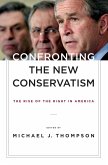American political development (APD) is core subfield in American political science, and it focuses on political and policy history. For a variety of reasons, most of the focus in twentieth century APD has been on liberal policymaking. Yet since the 1970s, conservatives have gradually assumed control over numerous federal policymaking institutions. This edited book is the first to offer a comprehensive overview of the impact of conservatism on twentieth century American political development, locating its origins in the New Deal and then focusing on how conservatives acted within government once they began to achieve power in the late 1960s. The book is divided into three eras, and in each it focuses on three core issues: social security, the environment, and education. Throughout they emphasize the ironic role of conservatism in the expansion of the American state. Scholars of the state have long focused on liberalism because liberals were the architects of state expansion. However, as conservatives increased their presence in the federal apparatus, they were frequently co-opted into maintaining or even expanding public fiscal and regulatory power.At times, conservatives also came to accept the existence of the liberal state, but attempted to use it to achieve conservative policy ends. Despite conservatives' power in U.S. politics and governance, the American state remains gargantuan. As Conservatism and American Political Development shows, the new right has not only helped shape the state, but has been shaped by it as well.
Through a sustained historical analysis of three of the most important issues in American politics--Social Security, environmental regulation, and federal education policy--Conservatism and American Political Development explores how conservatives have helped shape U.S. domestic policy and how the growth of the American state has in turn shaped conservatism. Featuring leading scholars of American political development, the book traces the evolution of each issue over the course of three epochs: the New Deal, the Great Society era, and the Reagan era. Throughout, it emphasizes the ironic role of conservatism in the expansion of the American state. As conservatives increased their presence in the federal apparatus, they were frequently co-opted into maintaining or even expanding regulatory and public fiscal power. At times, conservatives also came to accept the existence of the liberal state, but attempted to use it to achieve conservative policy ends. Despite conservatives' power in U.S. politics and governance over the last quarter century, "big government" remains. As Conservatism and American Political Development shows, conservatism has not only helped shape the state, but has been shaped by it as well.
Through a sustained historical analysis of three of the most important issues in American politics--Social Security, environmental regulation, and federal education policy--Conservatism and American Political Development explores how conservatives have helped shape U.S. domestic policy and how the growth of the American state has in turn shaped conservatism. Featuring leading scholars of American political development, the book traces the evolution of each issue over the course of three epochs: the New Deal, the Great Society era, and the Reagan era. Throughout, it emphasizes the ironic role of conservatism in the expansion of the American state. As conservatives increased their presence in the federal apparatus, they were frequently co-opted into maintaining or even expanding regulatory and public fiscal power. At times, conservatives also came to accept the existence of the liberal state, but attempted to use it to achieve conservative policy ends. Despite conservatives' power in U.S. politics and governance over the last quarter century, "big government" remains. As Conservatism and American Political Development shows, conservatism has not only helped shape the state, but has been shaped by it as well.

